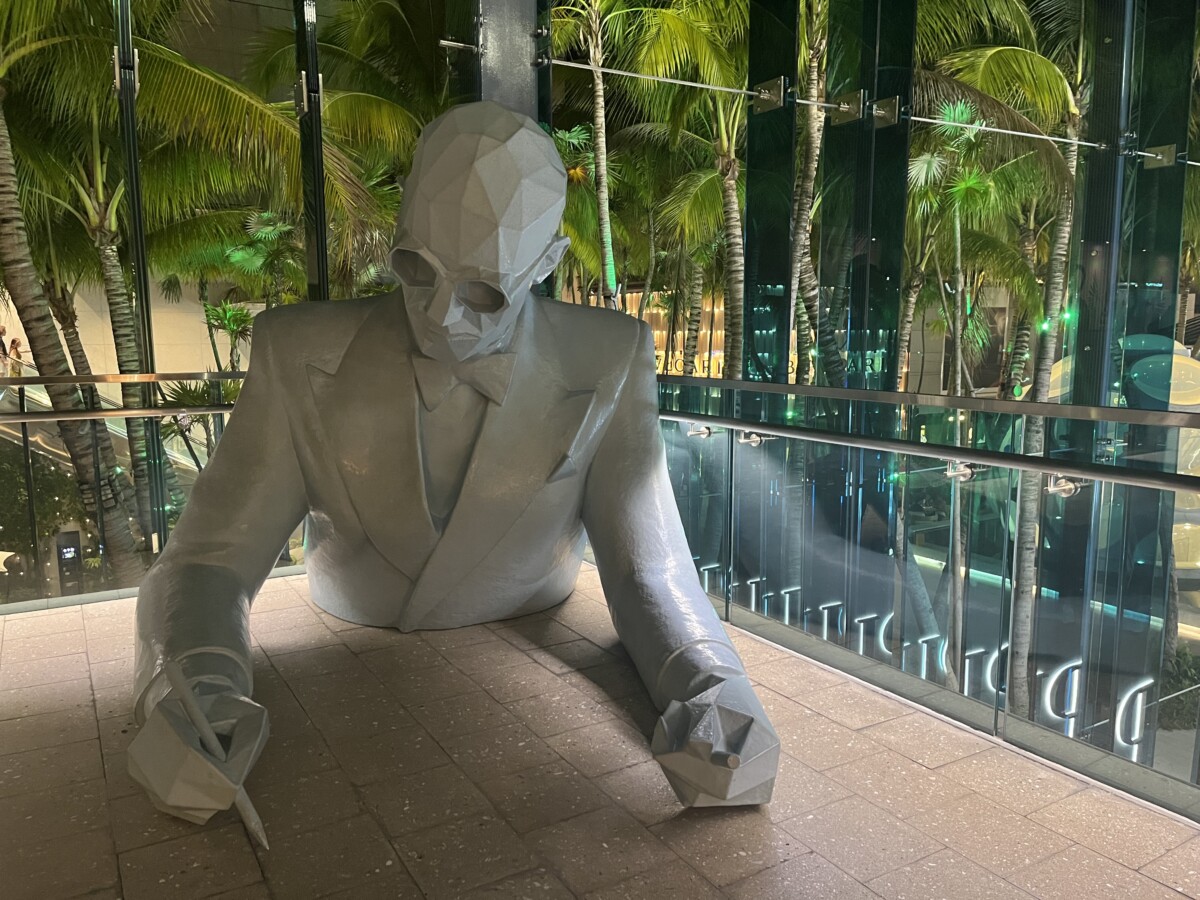On our recent trip to Miami, we walked around the Miami Design District. While I’m not a big shopper (especially regarding high-end brands such as Chanel, Gucci, and Fendi), I loved visiting the 18-block Miami Design District with jaw-dropping architectural features.
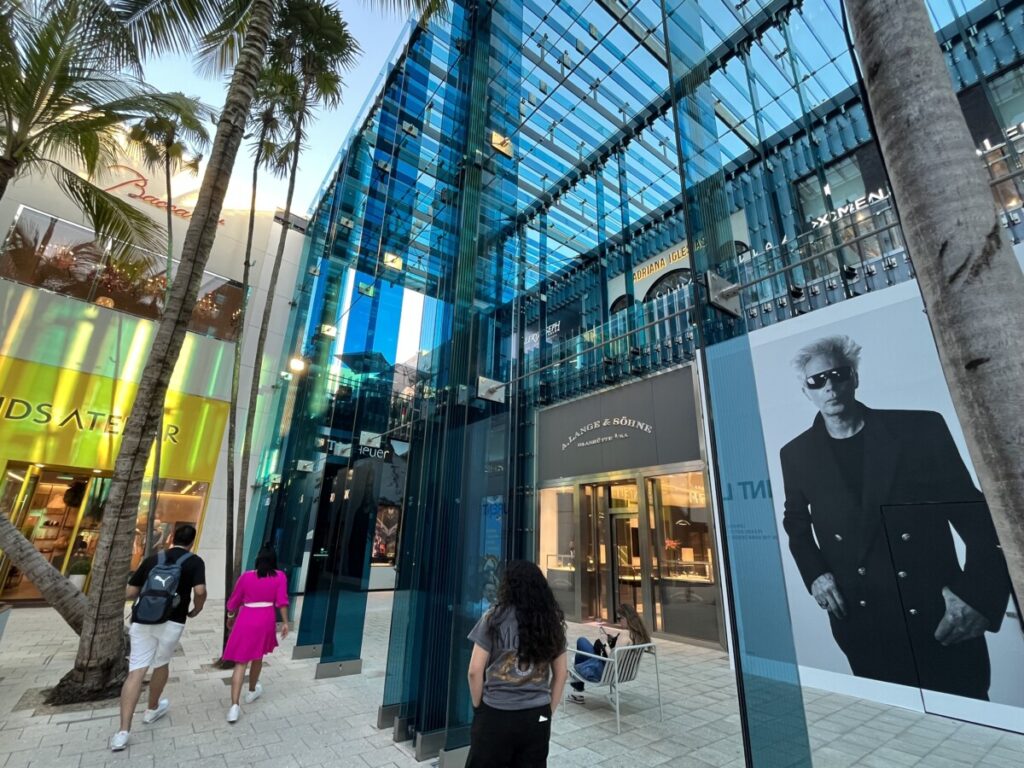
Brief History of Miami Design District
Miami Design District is the brainchild of real estate developer Craig Robins who had previously worked on redeveloping South Beach alongside Tony Goldman and others. Around 2000, Robins began purchasing buildings in the derelict Design District neighborhood just north of Wynwood. Once home to furniture showrooms, this neighborhood suffered a high vacancy rate and crime.
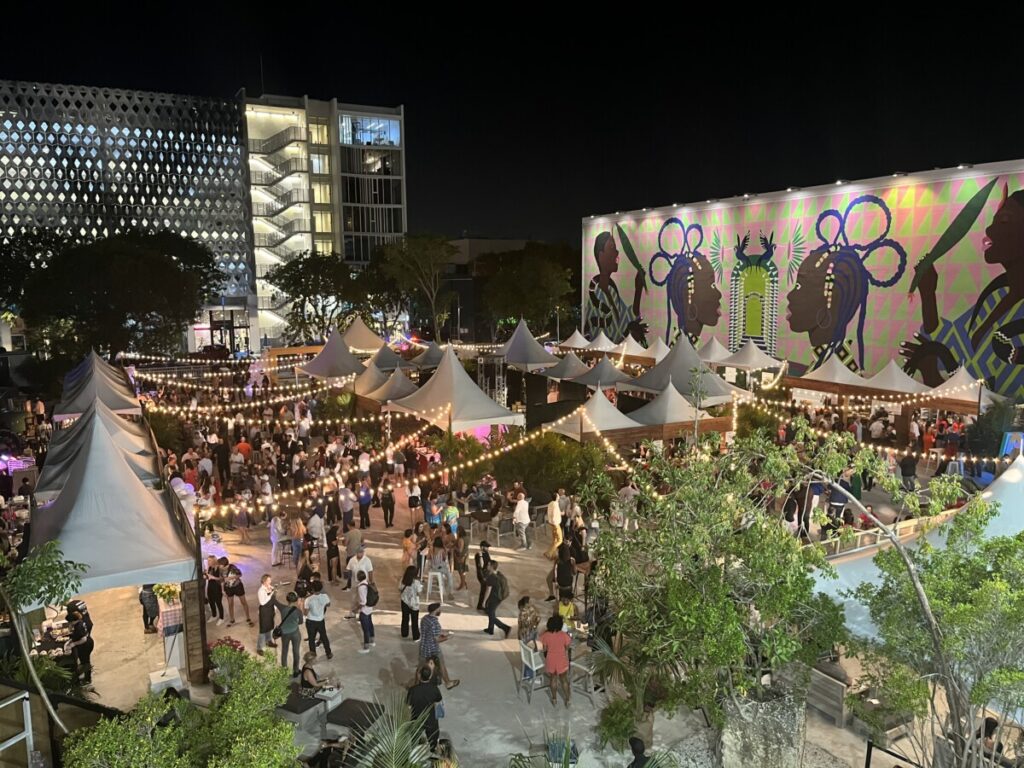
After Robins’ investment, Christian Louboutin opened its first Miami store in 2009. Other retailers soon followed and the rest is history. Today, the Design District hosts many events and concerts, especially in conjunction with Miami Art Week and Art Basel.
Shopping at Miami Design District
If you’re a shopaholic, you’ve come to the right place! You’ll find over 170 retailers including Burberry, Tori Burch, Hermes, Prada, and Tom Ford. If you’re in the market for high-end athletic shoes, stop by Fight Club – one of only three retail locations in the US. Even if you don’t like the price tag of these luxury brands, the storefronts provide a feast for the eyes.
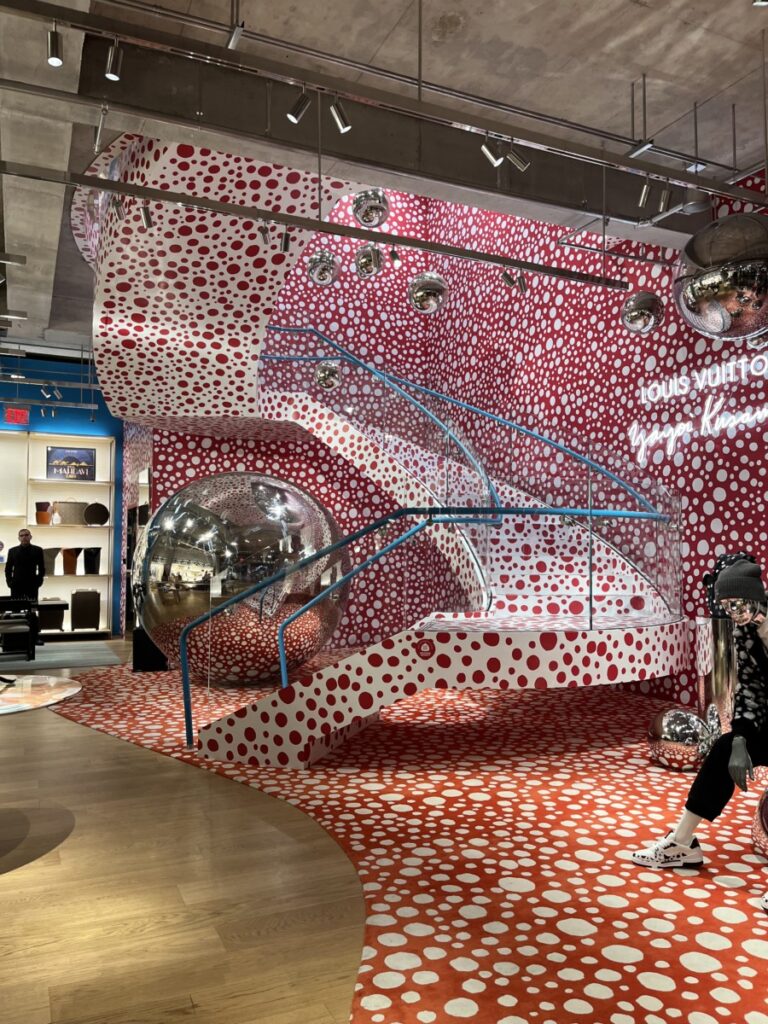
Not limited to clothing establishments, the Design District also encompasses art galleries, hair salons, fitness centers, and even a Tesla showroom.
Dining at Miami Design District
Restaurants and bars also abound bringing young people out in the evenings. We stopped at Swan and Bar Bevy with its indoor and outdoor seating areas.
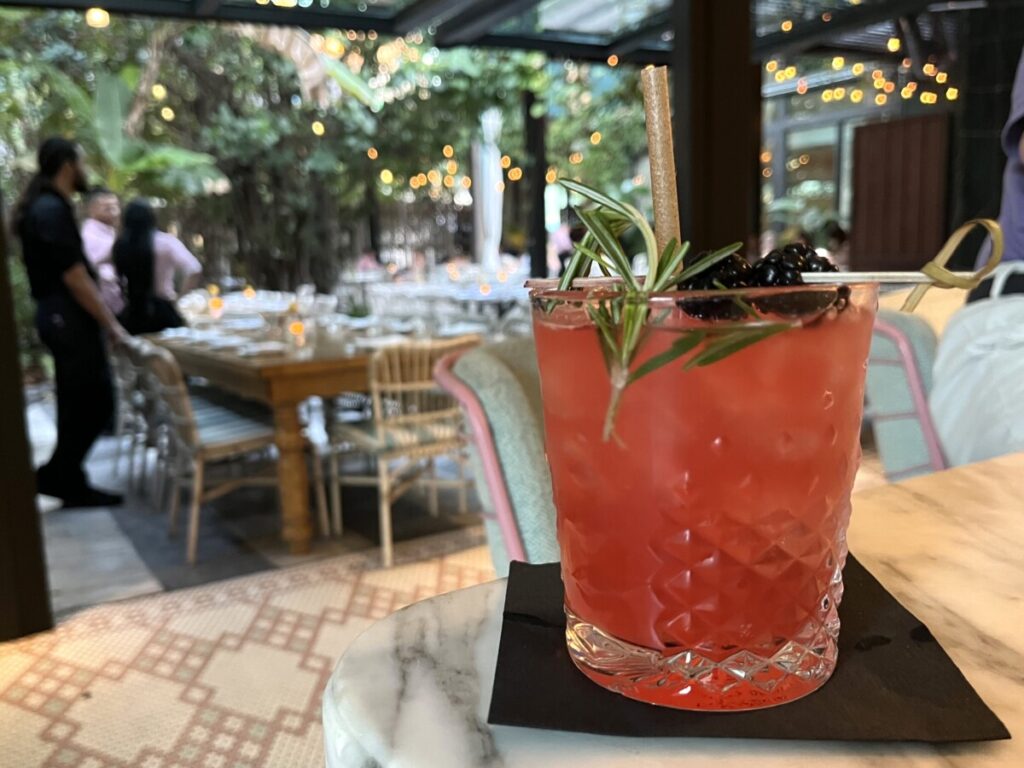
Michelin-starred restaurants include Le Jardinier, Cote Miami, and L’atelier de Joel Robuchon. But you’ll also find a food hall, bakeries, cafes, and even a shaved ice truck.
The Architecture of Miami Design District
One of the iconic structures in the Miami Design District is Fly’s Eye Dome by Buckminster Fuller. Located in the Palm Court, the bubble-like edifice leads to the parking deck below.
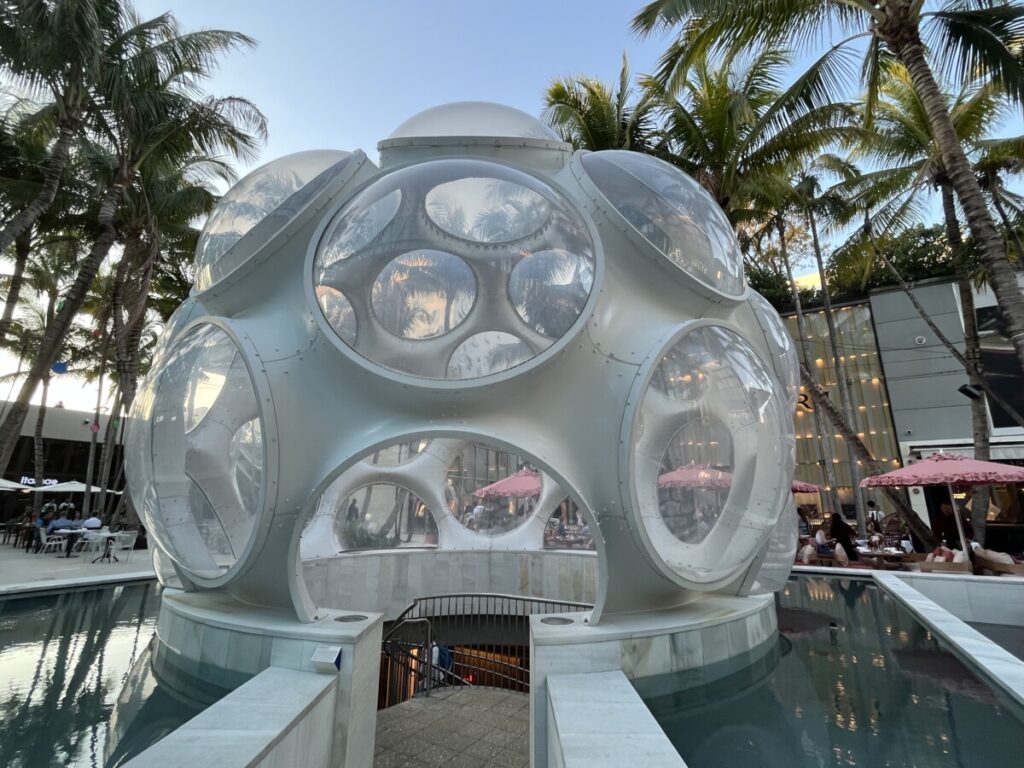
Nearby, we came to a grouping of swings called Netscape by Konstantin Grcic. Hung from a steel frame covered in vines, none of the 24 swings face each other so people can rest and reflect in their own world. We also passed by Conscious Actions by GT2P. This playground area features swings and other child-friendly play structures for adults and kids to enjoy.
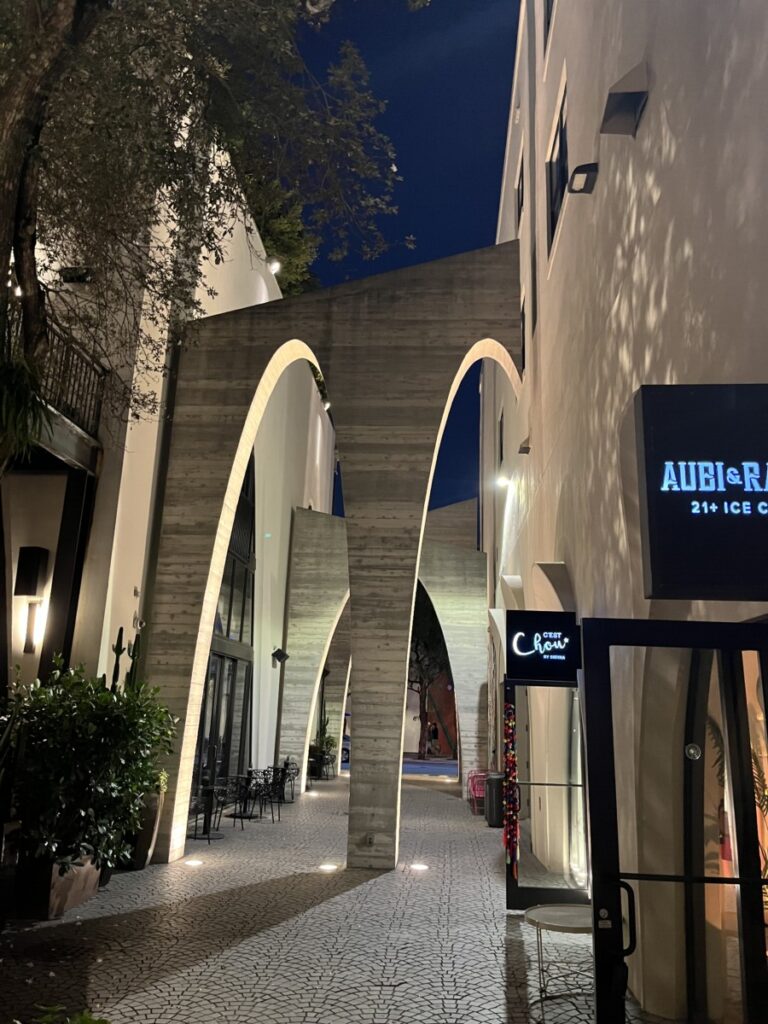
As evening approached, lights came on and we walked through Daniel Toole’s Jade Alley which adds architectural interest to an alley with a series of arches. Across 41st Street, Toole’s Steel Alley adds visual interest to another parking garage entrance.
Public Art
Everywhere we walked, art displays popped up. I loved Jokester by Paula Crown which cautions against using single-use plastic items (such as Solo cups) in order to be more environmentally savvy.
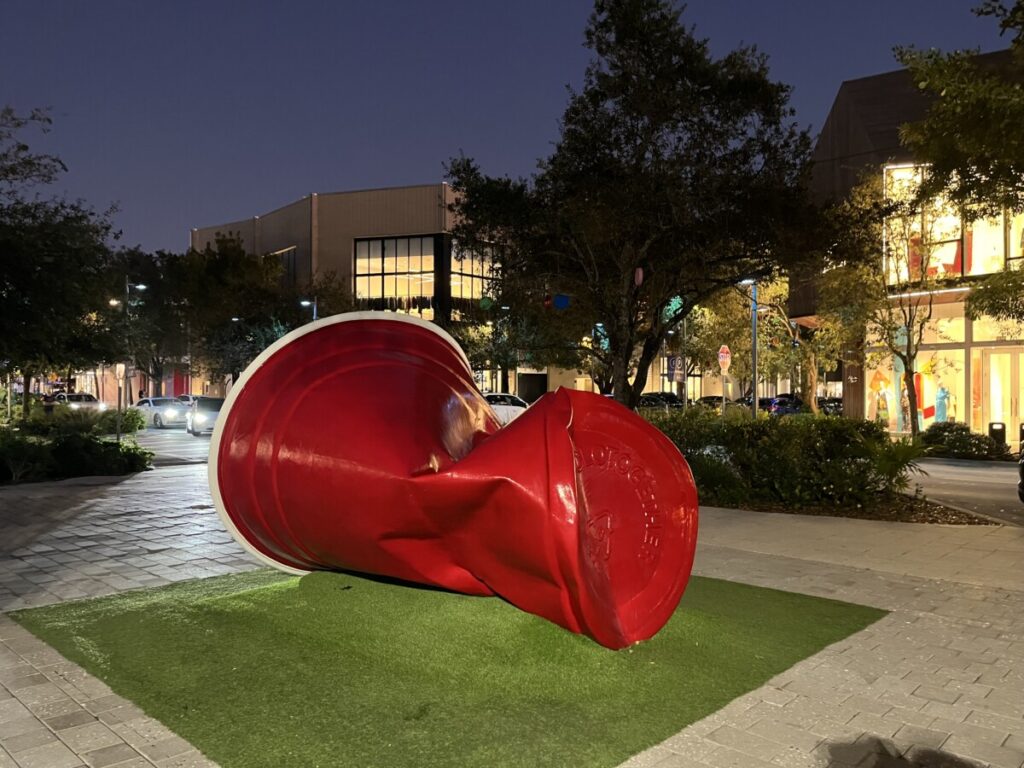
Le Corbusier by Xavier Velhein pays homage to the Swiss-born architect (1887-1965) who helped develop modern architecture. Le Corbusier’s designs focused more on functionality than aesthetic appeal, giving birth to the Brutalism architecture movement.
Conclusion
The neighborhood provides something for everyone with shops, art, restaurants, and special events. For more information, see the Miami Design District website here.
